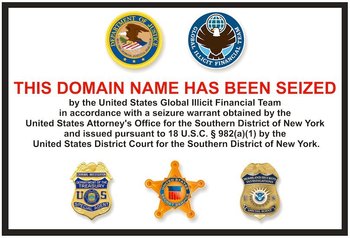The U.S. Department of Justice has indicted online payment processor Liberty Reserve for laundering $6 billion in a series of global transactions, which the agency charges may be the largest international money laundering prosecution in history.
"Liberty Reserve was intentionally created and structured to facilitate criminal activity. It was essentially a black market bank," said Preet Bharara, U.S. attorney for the Southern District Court of New York, in a press conference Tuesday. "As alleged, it deliberately operated in a way to attract and aid criminals who wish to use digital currency to break the law and launder the proceeds of their crimes."

The DOJ has indicted Liberty Reserve for allegedly laundering $6 billion in a series of global transactions
Liberty Reserve founder Arthur Budovsky was arrested in Brooklyn, New York, on Friday for operating an unlicensed money transmitting business, along with six other company principals who were arrested in Brooklyn, Spain and Costa Rica.
The DOJ has shut down the Liberty Reserve service, seizing $25 million in funds. The law enforcement agency also seized five Internet domain names, including LibertyReserve.com and four related currency exchange sites. The LibertyReserve.com site went offline Thursday, with traffic first being redirected to a DOJ banner on Tuesday. In addition, 45 bank accounts were restrained or seized and a civil action was filed against 35 third-party exchange websites that operated on behalf of Liberty Reserve.
Helping the DOJ pursue the case were the U.S. Secret Service, the Internal Revenue Service, the Department of Homeland Security's U.S. Immigration and Customs Enforcement (ICE) and the Department of the Treasury, as well as 17 law enforcement agencies from other countries.
"Our efforts shatter the belief among money launderers that what happens in cyberspace stays in cyberspace. No longer should they lull themselves into a false sense of security, thinking that the Internet provides absolute anonymity," said David Cohen, the Treasury Department's undersecretary for terrorism and financial intelligence, also at the press conference.
Incorporated in Costa Rica in 2006, Liberty Reserve S.A. billed itself as a currency exchange, a service to send and receive payments from anywhere in the globe. It charged 1 percent of the money being exchanged as a fee, up to $2.99. Registering for the service required only a valid email address, along with a name and birthdate, which Liberty Reserve did not verify. The service had more than 1 million users worldwide, including 200,000 in the U.S. It processed more than 12 million transactions yearly, amounting to a value of more than US$1.4 billion.
From 2006, the company processed more than 55 million transactions and transferred more than $6 billion in illegal funds, according to the DOJ. The company did not register itself with the DOJ as a money transferring business.
The DOJ charged that Budovsky and his co-conspirators "intentionally created, structured, and operated Liberty Reserve as a criminal business venture, one designed to help criminals conduct illegal transactions and launder the proceeds of their crimes," according to the indictment. In particular, the service was maintained so that individual transactions would be anonymous and untraceable.
Liberty Reserve did not accept transfers of money itself directly from its users. Instead, customers deployed pre-approved third party exchangers, which would buy and sell in bulk a Liberty Reserve currency called LR. Because Liberty Reserve was not keeping track of end users, it provided a layer of anonymity in its transactions. In addition to the Liberty Reserve fee, exchangers would also charge fees, which in many cases would run to 5 percent or more of the amount being transferred, which was more costly than most legal payment processors and banks.
"By providing layers of anonymity, the company allowed users to engage in illegal transactions that wouldn't have been possible in legitimate financial systems," Bharara said. "Users routinely and brazenly established accounts under fictitious names."
Liberty Reserve had become a financial hub for a wide range of illegal activities, including credit card theft, identity fraud, investment fraud, computer hacking, child pornography and narcotics trafficking, the DOJ charged. Even after the DOJ started investigating Liberty Reserve in 2011, the organization continued to operate under the guise of a number of shell companies located in Cypress, Hong Kong, Russia, China, Morocco and other countries.
Because of the way Liberty Reserve operated, almost all of the activity on the service was illegal in nature, the law enforcement executives maintained. "Task force agents investigating the case determined that almost all of the transactions where Liberty Reserve currency was used involved illegal activity," said James Hayes, the ICE special agent in charge of the New York field office, at the press conference. Those who were using the service for legitimate, non-illegal activities can call the DOJ in order to see if they can have any money held by the company returned. "We'll do the best we can to get their money back," Bharara said.
The name of the judge presiding over the case has been redacted, in case of any attempted "personal retaliation" that might arise from the case, according to Bharara.





